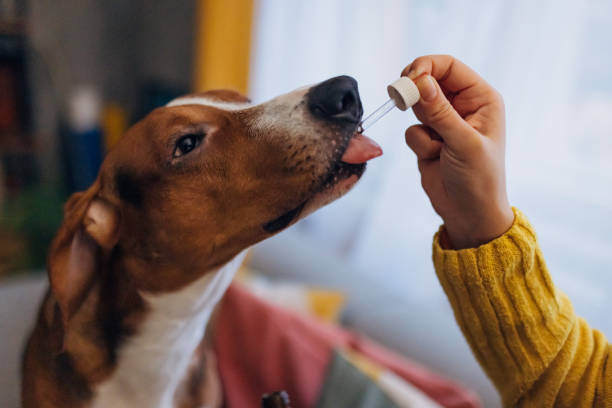Keeping our pets healthy and happy is always a top priority.
Whether your pet is a young pup full of energy or a senior companion needing extra support, supplements can play a vital role in their overall well-being. But with so many options on the market, choosing the right supplement can feel overwhelming. Which ones actually matter, and which ones are you better skipping out on? This guide will break down what you need to know so you can make the best decision for your furry friend!
Do Pets Need Supplements?
While high-quality pet food provides essential nutrients, some pets need a little extra help. Supplements can support various aspects of your pet’s health, including joint health, which aids in mobility and arthritis prevention, and skin and coat health, which promotes a shiny coat and reduces itching. Digestive health supplements help maintain gut balance and prevent upset stomachs, while immune system boosters strengthen immunity and fight infections. Additionally, some supplements are designed to aid in calming nervous pets and reducing anxiety and stress.
Factors to Consider When Choosing a Supplement
 Not all supplements are created equal. Here’s what to look for when selecting the best option:
Not all supplements are created equal. Here’s what to look for when selecting the best option:
Consult Your Veterinarian
Before introducing any supplement, talk to your vet. They can recommend products based on your pet’s specific needs, age, and breed.
Look for Quality Ingredients
Check the label for high-quality, natural ingredients. Avoid artificial fillers, preservatives, and by-products that may do more harm than good.
Understand the Specific Needs of Your Pet
Each pet has different requirements. Consider factors such as:
- Age: Puppies may need DHA for brain development, while seniors might benefit from glucosamine for joint health.
- Breed: Larger breeds often need extra joint support, while smaller breeds may require dental supplements.
- Health Conditions: Specific supplements can address allergies, digestive issues, or anxiety in pets.
Check for Third-Party Testing & Certifications
Choose brands that are certified by reputable organizations like the National Animal Supplement Council (NASC). This ensures safety and quality.
Read Customer Reviews
Real pet parents can provide insights into how well a supplement works. Look for reviews mentioning improvements in their pets’ health.
Choose the Right Form
Supplements come in different forms, including:
- Chews & Treats – Great for picky eaters.
- Powders – Easy to mix into food.
- Liquids – Ideal for pets who struggle with pills.
- Capsules & Tablets – Often more concentrated but may be harder to administer.
Best Supplements for Common Health Issues
 Joint Support
Joint Support
- Glucosamine & Chondroitin – Supports cartilage health and reduces inflammation.
- Omega-3 Fatty Acids – Helps with joint mobility and reduces stiffness.
Skin & Coat Health
- Fish Oil (Omega-3s & Omega-6s) – Promotes a shiny coat and reduces shedding.
- Biotin – Strengthens hair and nails.
- Vitamin E – Supports skin hydration and healing.
Digestive Health
- Probiotics – Maintain gut balance and improve digestion.
- Pumpkin – Helps with both constipation and diarrhea.
- Fiber Supplements – Support digestive regularity.
Immune Support
- Vitamin C & E – Helps strengthen immunity.
- Colostrum – Supports gut health and immune response.
Anxiety & Stress Relief
- CBD Oil – May help calm anxious pets.
- L-Theanine & Tryptophan – Supports relaxation and reduces stress.
- Chamomile & Valerian Root – Natural calming herbs.
How to Introduce a New Supplement
 When introducing a new supplement, start with a small dose to see how your pet reacts. Pay close attention to any changes in behavior or signs of digestive upset. If your pet tolerates the supplement well, gradually incorporate it into their meals or as treats to ensure they accept it easily. Consistency is key, as most supplements take time to show results, so sticking with a regular schedule will provide the best outcomes.
When introducing a new supplement, start with a small dose to see how your pet reacts. Pay close attention to any changes in behavior or signs of digestive upset. If your pet tolerates the supplement well, gradually incorporate it into their meals or as treats to ensure they accept it easily. Consistency is key, as most supplements take time to show results, so sticking with a regular schedule will provide the best outcomes.
Red Flags to Watch For
When selecting a supplement, be cautious of products with unclear ingredient lists or those that contain artificial colors, preservatives, or flavors. Avoid any supplement that makes exaggerated claims of being a “miracle cure,” as reputable products are backed by science and realistic expectations. Additionally, ensure the product has third-party testing or certifications, as this guarantees higher safety and quality standards.
Choosing the right supplement for your furry friend doesn’t have to be complicated. By considering your pet’s unique needs, checking for quality ingredients, and consulting with your vet, you can find a supplement that enhances their health and happiness. Whether it’s for joint support, digestion, or a shinier coat, the right supplement can make a world of difference.
Find tips on pet care, gear, and more on the Gingr Blog!
Grow your pet-care business with Gingr. Get a demo today!
Subscribe to the Gingr Blog






